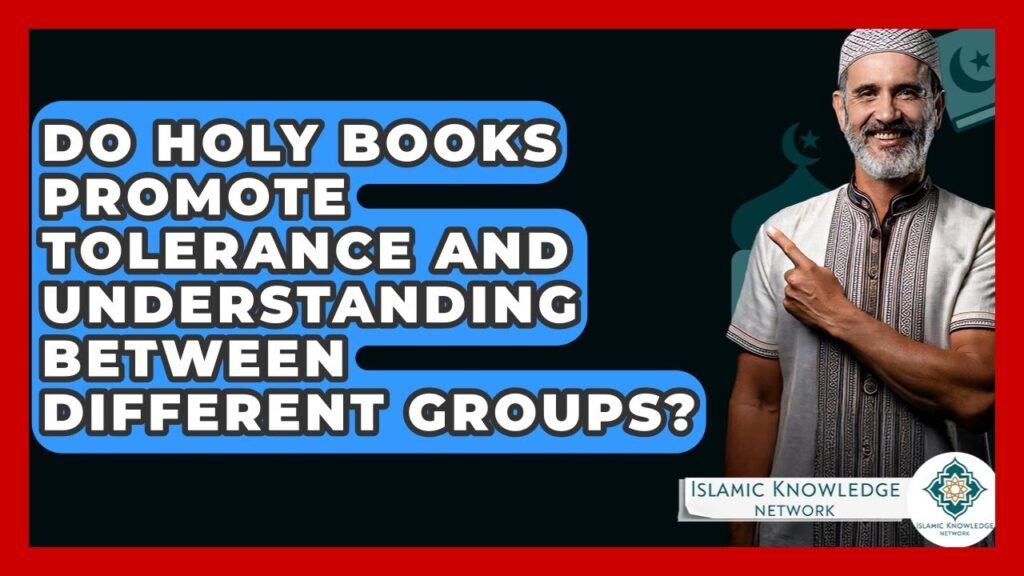Disclaimer:
The content published on this website is provided for general informational purposes only. Articles are generated with the assistance of artificial intelligence and are reviewed periodically; however, accuracy cannot be guaranteed in all cases. Readers are encouraged to verify important information from reliable and authoritative sources before relying on it. The website does not intend to mislead, and any errors found will be corrected when identified.
Introduction
In a world often marked by division and conflict, the role of holy books in fostering tolerance and understanding among different groups has become increasingly relevant. Texts sacred to various faiths, whether the Bible, Quran, or other scriptures, often advocate for compassion, empathy, and respect for others. This prompts an important question: do these revered texts truly serve as bridges between diverse communities, or do they sometimes inadvertently contribute to discord?
At Airlink Hajj and Umrah, we understand the significance of these discussions, especially for pilgrims embarking on their spiritual journeys. Our blog stands as a resource for all the latest updates on Hajj and Umrah, providing insights that not only enhance your spiritual experience but also explore the interfaith dialogues that arise from shared sacred teachings. By examining the messages of tolerance found within holy books, we can better navigate the complexities of our global society and foster greater understanding among different cultures.
Do Holy Books Encourage Tolerance Among Different Groups?
Holy books have long been seen as guiding lights for billions around the globe. They often promote messages of peace, love, and compassion, which can foster tolerance among diverse communities. For instance, texts such as the Quran, Bible, and Bhagavad Gita emphasize the importance of understanding and accepting others, regardless of their beliefs or backgrounds. This intrinsic value of tolerance is essential, especially in today’s diverse societies.
Moreover, many religious teachings encourage followers to embrace the idea of coexistence, urging them to respect differences rather than fear them. Such principles can lead to harmony and unity within communities, helping bridge gaps between various groups. By promoting dialogue and mutual respect, holy books can indeed serve as tools for creating a more inclusive society.
At Airlink Hajj and Umrah, we recognize the significance of these teachings as they relate to respectful pilgrimage experiences. Our blog is continually updated with the latest information on Hajj and Umrah, emphasizing the spiritual journey’s role in promoting understanding among people from different backgrounds. By nurturing these values, we aim to contribute to a world where tolerance prevails, reflecting the core messages found in holy books.
FAQ on “Do Holy Books Encourage Tolerance Among Different Groups?”
-
Do all holy books promote tolerance, or are there specific verses that suggest otherwise?
Many holy books contain teachings that advocate for love, compassion, and understanding among different groups, but interpretations can vary widely. -
How do the teachings in holy books compare when it comes to tolerance?
Different holy texts may emphasize various aspects of tolerance, with some focusing on the importance of coexistence and others highlighting boundaries between believers and non-believers. -
Can religious leaders influence how holy books are interpreted regarding tolerance?
Yes, religious leaders play a significant role in interpreting texts and can either promote tolerance or incite division, depending on their perspectives.
-
What are some historical examples of holy books fostering interfaith dialogue?
Numerous instances exist where religious texts have been used to bridge gaps between faiths, fostering discussions and initiatives for peace and understanding. - How do personal beliefs shape one’s understanding of tolerance in holy texts?
Individual beliefs and experiences significantly impact how one interprets the writings, leading to diverse understandings of tolerance based on cultural and personal contexts.
Mushu, an experienced Saudi Arabia traveler and writer, shares insightful tips and spiritual reflections to enhance Hajj and Umrah journeys for fellow pilgrims. He has been to Makkah and Madina from 2016 to 2023 many times and his posts will reflect this.







